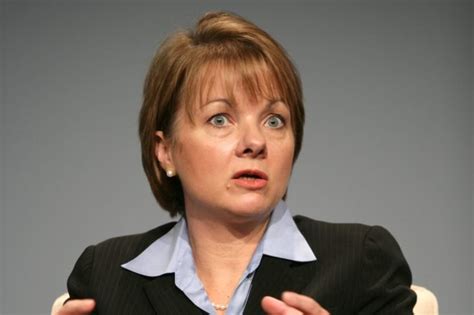A Quote by Claire McCaskill
I think people forget that when people lose Medicaid coverage, they still show up at the hospital when they have a chronic illness or a traumatic impact on their health. And those bills are paid by the hospital who then passes those costs on. They do not have a magic fairy paying the bills for people who show up without insurance. Those bills are passed on to all the people in our country that do have insurance. That's why this bill is not going to break the cycle of higher premiums - because we're going to have fewer people insured.
Related Quotes
When you pay a hospital bill, you're really paying two hospital bills - one bill for you because you have a job and/or insurance and can pay the hospital. and another bill, which is tacked onto your bill, to cover the medical expenses of someone who doesn't have a job and/or insurance and can't pay the hospital.
The U.S. has a system that does have a poor cost-benefit ratio. I mean, 40 million people lack insurance; another 30 million or so are underinsured. The people who are insured do have to worry whether they are able to pay the bills. People become bankrupt because they cannot pay the medical bills, and there are vast differences in the quality of care depending on how much you are prepared and able to pay. I think the system is not working well.
In the richest country in the history of the world, this Obama economy has crushed the middle class. Family income has fallen by $4,000, but health insurance premiums are higher, food prices are higher, utility bills are higher, and gasoline prices have doubled. Today more Americans wake up in poverty than ever before.
Those with health insurance are overinsured and their behavior is distorted by moral hazard. Those without health insurance use their own money to make decisions based on an assessment of their needs. The insured are wasteful. The uninsured are prudent. So what's the solution? Make the insured a little more like the uninsured.
If we are enforcing what should be the rules around Medicare and making sure the people are getting the bang for the buck, it's not going to be possible for insurance companies to simply pass on those costs to Medicare recipients, because ultimately it's Uncle Sam that's paying for those services anyway.
When someone has to go to the hospital because they don't have insurance - and by the way, I think the insurance companies should be out of the mix altogether - but when someone needs health care, and they don't have the ability to pay for it, in our communities, we end up paying for it one way or the other.
Well, I'm telling them two things. One is that, look, this is going to be something when the American people realize - once it's passed - that, A, it does take care of preexisting conditions; B, you're insurance rates aren't going to skyrocket; C, the insurance companies aren't going to be running the show like they were before; D, you're going to be in a position where you can keep your insurance that you have. That once the American public realizes that, you're going to get a reward for this. They're going to be rewarded.
One of the biggest reasons for higher medical costs is that somebody else is paying those costs, whether an insurance company or the government. What is the politicians' answer? To have more costs paid by insurance companies and the government. ... [H]aving someone else pay for medical care virtually guarantees that a lot more of it will be used. Nothing would lower costs more than having each patient pay those costs. And nothing is less likely to happen.
The measure of our mindfulness, the touchstone for sanity in this society, is our level of productivity, our attention to responsibility, our ability to plain and simple hold down a job. If you're still at the point when you're even just barely going through the motions--showing up at work, paying the bills--you are still okay or okay enough. A desire not to acknowledge sadness in ourselves or those close to us--better known these days as denial, is such a strong urge that plenty of people prefer to think that until you are actually flying out of a window, you don't have a problem.

































